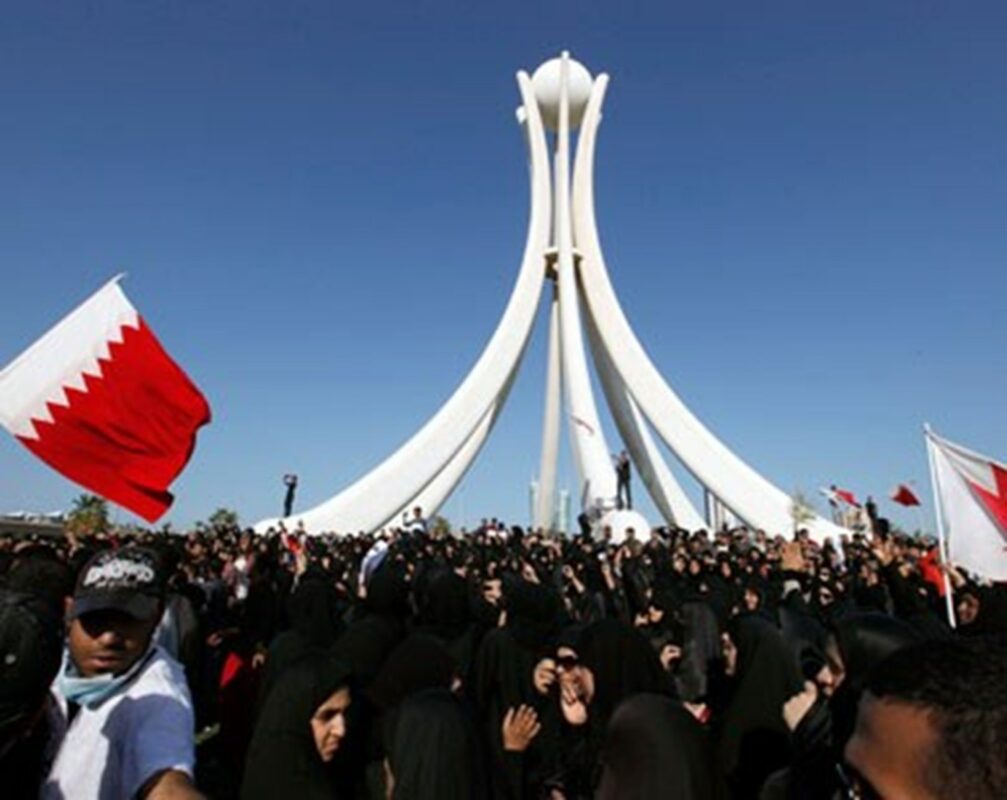The international community should be alarmed by the Government of Bahrain’s continued campaign against the expression of dissent by civil society and peaceful political opposition. A decade after the historic 2011 protests, any positive change has been overshadowed by darker days characterized by arrests and mass trials, the implementation of new and depraved laws, and an environment of intensified persecution. Those hopeful moments at Pearl Roundabout, when protesters were able to raise their voices through speeches, poetry, and spirited cheering, have long since dissipated with the crackdown against any form of dissent. Quite simply, the space for dissent has diminished––and with it, the fear of persecution and reprisals has prevented many would-be dissenters from raising their concerns publicly.
The crackdown against dissent in Bahrain has come via perverse changes to the legal system, as well as through the continued imprisonment of human rights defenders and political opposition, public persecution of individual dissidents, and an assault on both traditional and social media and certain media users. The Bahraini authorities currently deploy a zero tolerance policy, which ensures that measures are taken against individuals or groups who publicly engage in criticism of the political situation, raise human rights concerns, or simply attempt to report the truth.
The penalty for speaking one’s mind, either in person or through social media, comes with any number of inhumane consequences: imprisonment, torture, denaturalization of citizens leading to statelessness, forcible exile, and/or execution. It suffices to say that these are unbalanced responses to the mere act of, for example, tweeting the truth, as was the case for Nabeel Rajab and led to his lengthy imprisonment. Furthermore, the government does not hesitate to punish relatives of dissidents in the hopes that this will silence the dissenter, as experienced by the Al-Wadaei family.
Women human rights defenders are not spared by the authorities; prominent activists and relatives have also experienced brutality at the hands of the authorities. This includes individuals such as Ebtisam al-Saegh, whose activism in international human rights circles was met with travel bans, repeated summons for interrogations, and a conviction for terrorism-related offences. Prior to enduring unsanitary and inhumane prison conditions, Ebtisam was sexually abused and beaten during her interrogation process, in addition to standing for the entirety of the interrogation. Chemical engineer Zakeya al-Barboori remains imprisoned as Bahrain’s last female political prisoner; she experienced similarly harsh treatment in the process of her detention.
Bahrain’s judiciary and legal systems have played both active and passive roles in the government’s strategy to suppress dissent. They have done this through a number of avenues, including the dissolution of political societies such as Al-Wefaq, the issuance of travel bans on activists and human rights defenders, the approval of the denaturalization of hundreds of individuals critical of the government, and through the enactment of new laws. For example, in April 2013, the Kingdom’s counterterrorism law was expanded to include non-violent protests, human rights work, peaceful activism and dissent. In April 2017, the Bahraini Parliament sanctioned a constitutional change permanently allowing military courts to try civilians, provided that these individuals are accused of terrorism; naturally, an accusation of terrorism often serves as the pretense necessary to ensure that this condition is met. Military courts previously had been introduced as an element of the three-month martial law that was declared by King Hamad bin Isa al-Khalifa during the 2011 protests. In 2019, Bahrain passed a Press and Media Bill that defined “social media misuse” to criminalize the use of social media for the purposes of dissent; it has since been used to imprison .
It is this context that leads to the concern about the absence of dissidents and the disappearance of their voices. The harsh treatment of peaceful, civil society dissidents in Bahrain merits the utmost concern from the international community. Political prisoners must be released, and peaceful dissent must be allowed back into society. For real change to occur, the legal regimes that support the authorities’ ability to repress dissent must also be amended or repealed.
ADHRB calls on the international community to raise these issues at the upcoming 46th session of the United Nations Human Rights Council through both bilateral and multilateral pressure on Bahrain. It is the duty of the international community to provide accountability where a situation calls for it; in Bahrain, the need for accountability is imperative––and long overdue.





